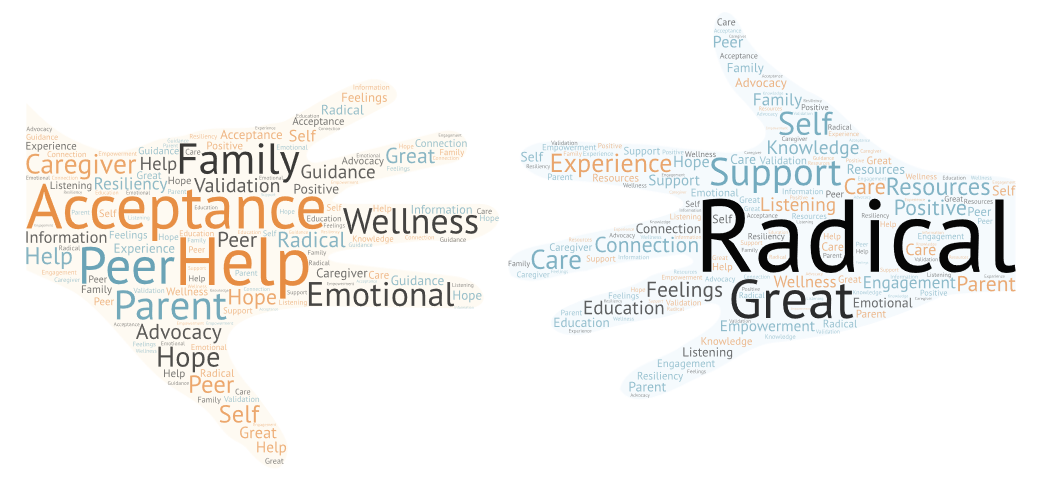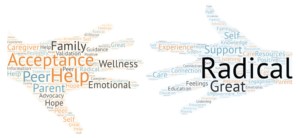
by Erin Faulkner, Family Peer Supporter
June 13, 2023
Here at MPN, all of the Peer Supporters, both in the Family Division and Recovery Division, are tasked with writing an article, or a blog, about the month’s topic. This month’s topic is Radical Acceptance. I had never heard this term before. Many of you may be in the same situation. It is to you that I share what I learned.
I started my education with a Google search. The first website that came up was verywellmind.com that defined Radical Acceptance as “the ability to accept situations that are outside of your control without judging them, which in turn reduces the suffering that is caused by them. Radical acceptance is based on the notion that suffering comes not directly from pain, but from one’s attachment to the pain.“ As I read those words, I immediately thought about a video that was just shared with us at a staff education meeting. We watched a Ted Talk by Cy Wakeman titled “Ditch the Drama – How to Live Happy in a Messy World”. Ms. Wakeman asks, “How can you just flip your own toggle switch from suffering to a better view of the world?” Her answer? Self-reflection involving three questions.
- What do I know for sure?
- What can I do to help?
- What would great look like?
Originally, I watched this video through the eyes of an employee contemplating the drama in my life. As I thought about the definition of radical acceptance and the connection to this video regarding suffering and the need to separate myself from the pain, I realized that these 3 questions could be a guide to radical acceptance. When we are suffering emotionally, from a new diagnosis, from the uncertainty of our child’s future or from the weariness of each day caring for our families, we can ask ourselves these same questions. Sometimes, we get wrapped up in the “what ifs” and move too far from the “what is”. What do I know for sure? Once we answer that question, it may be easier to answer the next. What can I do to help? Some answers might be to talk to someone (peer support), get educated (find resources), take care of yourself in all dimensions. And with that follows the last question. What would great look like? This is a “what if” question but one that we often don’t ask ourselves as we typically hypothesize the worst outcomes and not the best. We can’t always change the outcome for our children, but we may be able to change our feelings, our lives, our outcomes as individuals and as families.

